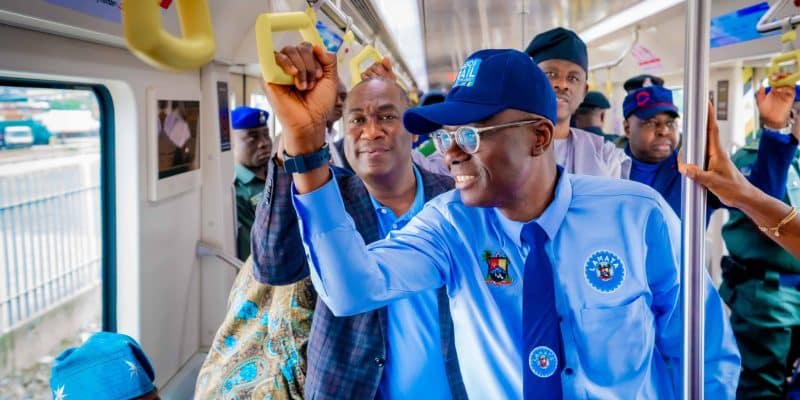It will now take just 15 minutes to travel from the Lagos Marina to the Mile 2 district. This is one of the advantages of the new metro system in Nigeria's business capital, whose first line is now operational.
A new page has been turned for sustainable mobility in Nigeria with the opening of the Lagos metro. Dubbed the “Blue Line”, the first section of this recently inaugurated rail project links the Lagos Marina (marina) to the Mile 2 district over a distance of 27 kilometres, in just 15 minutes. The journey is half that of a bus, and the 175,000 daily passengers will have to pay 750 naira (almost a dollar) for it.
The work, launched in 2003 by President Bola Tinubu, then Governor of Lagos, was carried out by the China Civil Engineering Construction Company (CCECC). It is a subsidiary of the China Railway Construction group based in Beijing, China. The second line of this metro, powered by electric traction, will link Mile 2 and Okokomaiko in the west of Lagos. It is expected to serve up to 500,000 people. The aim is to relieve congestion in Nigeria’s economic capital, which currently has a population of 21 million. That’s six times more than the federal capital Abuja.
“We will be working to a schedule and timetable available on our website. For the first two weeks, the train will make 12 journeys a day. When it enters one of the five stations (Marina, National Theatre, Orile-Iganmu, Alaba and Mile 2, editor’s note), it will not stop for more than 90 seconds”, explains Abimbola Akinajo, the Managing Director of the Lagos Metropolitan Transport Authority (LAMATA).
Read also-AFRICA: Cairo, Lagos and Nairobi still in the Top10 most polluted cities
The inauguration of the Lagos metro, the first line of which was entirely financed by the Nigerian state to the tune of 885 billion naira ($1.2 billion), comes three months after the introduction of two new electric buses in the city. They will help to accelerate the decarbonisation of public transport. The 80-seater vehicles were manufactured by Chinese carmaker Yutong in collaboration with Lamata and Nigerian energy solutions provider Oando.
Benoit-Ivan Wansi





